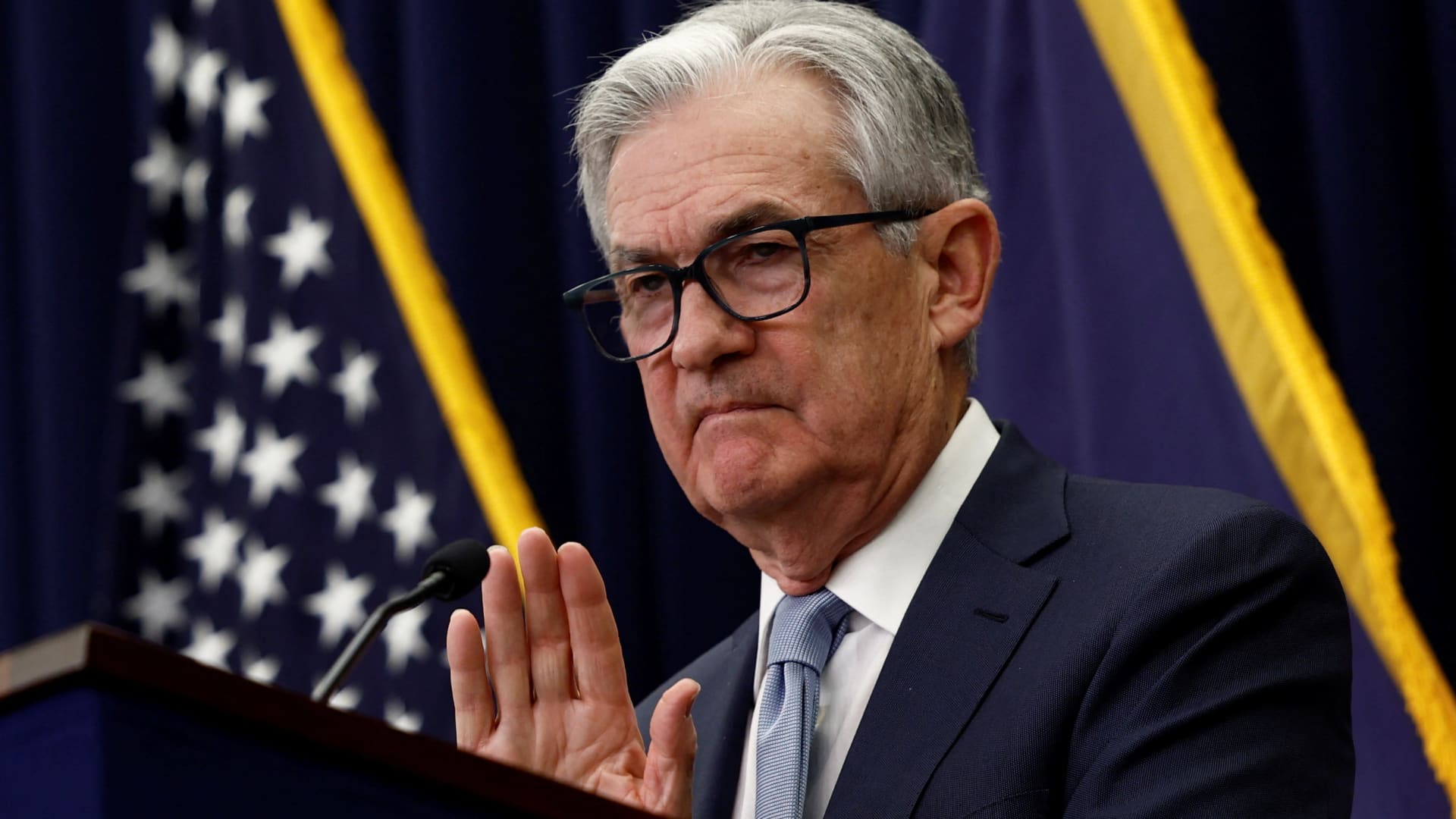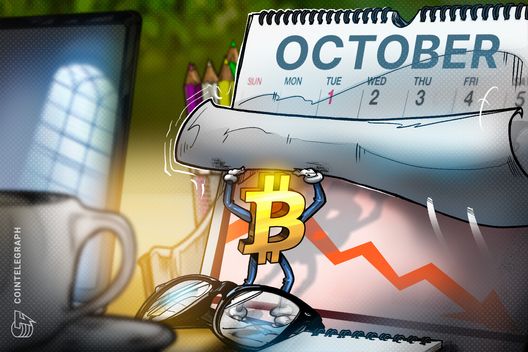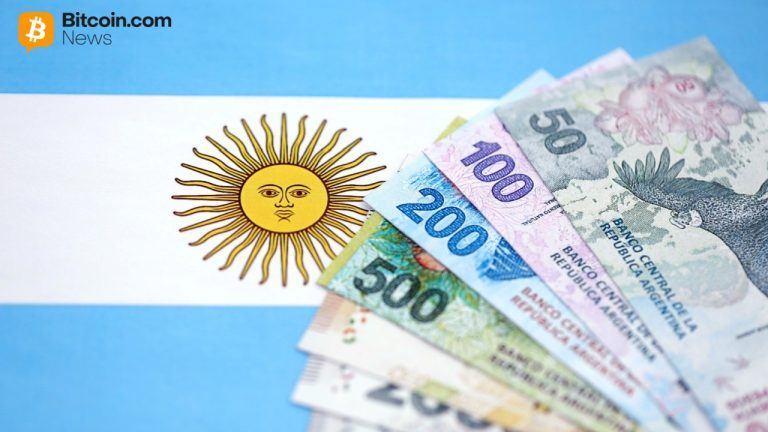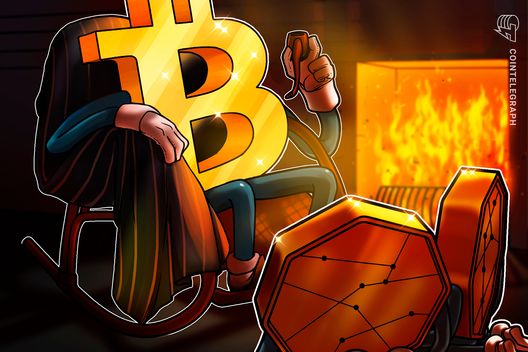Fed expected to slow rate hiking to a quarter point but will stay unrelenting in inflation battle
5 min read
Federal Reserve Board Chairman Jerome Powell holds a news conference following the announcement that the Federal Reserve raised interest rates by half a percentage point, at the Federal Reserve Building in Washington, U.S., December 14, 2022.
Evelyn Hockstein | Reuters
The Federal Reserve is expected to raise interest rates by just a quarter point, but the central bank will also likely signal it will stay vigilant in its fight against inflation even as it reduces the size of its hikes.
The Fed releases its latest rate decision Wednesday at 2 p.m. ET, and Fed Chairman Jerome Powell briefs the media at 2:30 p.m. The expected quarter point hike follows a half percentage point increase in December, and would be the smallest increase in the federal funds target rate range since the Fed’s first hike of the cycle in March 2022.
While the meeting is expected to be relatively uneventful, strategists say it could be a challenge for the Fed chairman to temper the reaction in financial markets. The markets have been rising as investors expect the Fed might succeed in a soft landing for the economy while also snuffing out inflation sufficiently to move back to easier policy.
“How is he going to tell people to calm down, chill out and don’t get so excited by us getting close to the end of the interest rate increases?” said Peter Boockvar, chief investment officer at Bleakley Financial Group. “He’s going to do that by still saying the Fed’s going to stay tight for a while. Just because he’s done doesn’t mean it’s a quick bridge to an ease.”
The Fed’s rate hike Wednesday would be the eighth since last March. It would put the fed funds target rate range at 4.50% to 4.75%. That is just a half percentage point away from the Fed’s estimated end point, or terminal rate range of 5% to 5.25%.
“I think he will push back on financial conditions. I think the markets are expecting that. I think people realize how much credit spreads have moved, how much the equity market has moved, how much tech stocks have moved. This month has been extraordinary,” said Rick Rieder, BlackRock’s chief investment officer for global fixed income.
A rally that could dampen the Fed’s efforts
Easy credit and a stock market that is rising too quickly could defeat the Fed’s efforts to chill the economy and crush inflation.
Stocks rallied Tuesday as the Fed began its two-day meeting, capping January’s gain of nearly 6.2% for the S&P 500. The tech sector was up 9.2% for the month. Rates have fallen since the end of the year, with the benchmark 10-year Treasury yield at roughly 3.5%, after ending December at about 3.9%.
Rieder expects Powell to deliver his comments with a hawkish tone. “I think if he’s hawkish, I think the markets have built that in. I think if he’s not, the market could make another leg,” he said.
In the futures market, fed funds futures continued to price a terminal rate of less than 5%. The futures also show investors expect the Fed to actually reverse policy and cut rates by at least 25 basis points by the end of the year. A basis point equals 0.01 of a percentage point.
“I think he’s going to be hawkish relative to market pricing,” said Jim Caron, head of macro strategies for global fixed income at Morgan Stanley Investment Management.
Caron said the Fed’s downsizing of its rate hikes will be seen dovish in itself. Prior to December’s 50 basis point hike, the central bank raised rates by 75 basis points four times in a row.
“He wants to defend the validity of the 5% to 5.25% terminal rate [forecast],” said Caron. “At the same time, he sees record housing prices are coming down. Wage inflation is coming down. The auto sector is not doing great. Retail’s not doing so great. The jobs market is doing okay. Wage inflation is coming down but it’s still above comfort levels.”
Listening carefully to the Fed’s messaging
Caron said Powell also wants to be careful not to sound too hawkish. “It’s very easy for there to be a mistake in the communication from the Fed or there could be a mistake in the way the market initially interprets things as well,” said Caron. “That tells me there’s going to be a lot of volatility.”
Investors will be attuned to any comments Powell makes about the economy and whether he expects it to dip into recession, as many economists forecast. The central bank has not projected a recession in its forecast, but it expects very sluggish flat growth, and it sees the unemployment rate rising sharply to 4.6% later this year, from its December level of 3.5%.
The Fed is not expected to make any major changes in its policy statement when it announces the rate hike. Its last statement said that “ongoing increases” in the target rate range will be appropriate in order to reach a policy position that can send inflation back to 2%.
The Fed is making headway against inflation. Personal consumption expenditure core inflation rose by 0.3% in December and was at 4.4% on an annual basis from 4.7% in November, the slowest increase since October 2021
Strategists say the Fed needs more data and will likely wait until at least March to signal how long it could it could continue to raise interest rates. If it stays at the same pace, there could be two more quarter point hikes.
The Fed will not be releasing any new forecasts or economic projections Wednesday. Its next forecast is the quarterly release of economic projections at the March meeting, and that is one way markets will get more clues on the Fed’s intended rate path.
“They don’t want financial conditions to ease all that much, and they don’t have a new set of forecasts to give, so I think what that means is you have fewer changes in the statement and that line about ‘ongoing increases’ is going to stay the same,” said Michael Gapen, Bank of America chief U.S. economist.
Gapen said it will be difficult for Powell to sound too hawkish. “Actions speak louder than words. If they decelerate [the size of rate hikes] for the second straight meeting in a row, it’s hard to back that up with overtly hawkish language,” he said.
Boockvar said Powell should emphasize how the Fed will keep rates at higher levels, despite the market view that it will soon cut rates. “Powell is more focused on inflation going down and staying down than trying to help the S&P 500,” said Boockvar. “His legacy is not going to be determined by where credit spreads are or where the S&P is going. It’s going to be determined by whether he slayed inflation and it stayed down.”







